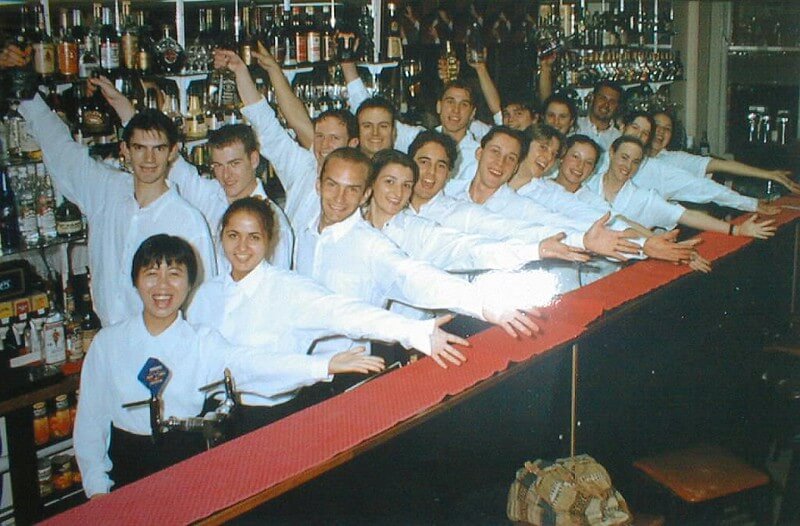
On Holding a Bar Meeting
There are few things in the service industry that hit more of a nerve than an inconveniently scheduled staff meeting. This is made worse when the scheduled meeting is as unproductive as it is inconvenient for those in attendance. Journalists hang their news reports on a framework of five questions: who, what, when, where and why. Anyone holding a bar meeting would do well to do the same. The only bar meetings worth anyone’s time are able to satisfy this requirement. The meeting itself should produce a solution to the sixth essential question of how. So today let us go over how to run a bar meeting that is productive and worth everybody’s time.
Bar Meetings Must Know Who To Invite
The who of your bar meeting should include one or more members of the establishment’s management or ownership team and anyone involved in the successful operation of the bar. If you’re having staff members face an issue or take on a new challenge, those calling a meeting better be there to discuss it with them. Sending passive-aggressive group texts or emails doesn’t foster much staff buy in. You want to be the boss? Act like one.
The bar relies on bartenders, bar backs, servers, bar managers, and kitchen staff if food is on offer. All of these people should be present at your bar meeting. Without any one of these people, the bar doesn’t succeed, so this meeting is dependent on all of them being on the same page with one another.
Bar Meetings Must Know What To Include
Structuring a bar meeting’s agenda is essential to it’s success. A rough outline of this structure would be to place management’s goals at the beginning of the meeting and staff feedback at the end.
Goals can include quarterly drink specials, new seasonal cocktails, kitchen specials, food pairings with drinks, changing drink recipes, instruction on new spirits or equipment behind the bar to name a few. This would be an ideal time to have the kitchen educate the bar staff on any new food specials by providing everyone a meal of the special. If any new liquor, wine, or beer is debuting at the bar and the brand wants to provide a demonstration of the product, this would be a great opportunity.
Next on the agenda should be where the bar staff needs improvement. This could be as simple as how many napkins should be stocked prior to a evening service or as involved as sharing complaints from customers regarding drink consistency or general service shortcomings. These criticisms should never call someone out in front of staff. Bar meetings are to improve the bar and its staff as a whole.
Now is the time to provide recognition and compliments of what the bar staff is doing well. Feel free to single out staffers who are executing their job in exemplary fashion. That too will provide a training opportunity for the rest of the staff regarding best practices around the bar. If you’ve Googled a joke beforehand now’s the time to let it out. Look for any opportunity to compliment the staff as it boosts morale.
Present the group with a project or goal and seek everyone’s opinions regarding how best to achieve it. Encourage staff to speak freely and write their suggestions down as they are given. Even if you know that most of what you write down will likely end up in the trash, take down every suggestion. Let them know you value their opinions.
We’re starting down the homestretch now. Ask the staff directly for any feedback they may have regarding the bar in general.
Bar Meetings Must Know When They Are
Find a time that allows for everyone to attend when it’s least disruptive to serving guests. It could be before a weekend open or right after a close on a Monday night. Reach out to the staff and gauge when they would least mind attending and what a second or third choice would look like. You’re trying not to impact service while also being considerate of staff members’ time. If you are able to satisfy both conditions that is a major win win. Be flexible but firm that a meeting will be held and you expect everyone to attend.
Bar Meetings Must Know Where They Are
The meeting can either be at the bar or off-site. Any meeting among staff away from the establishment tends to be less organized, less attended, and less productive than those held at the bar. The quiet of a closed bar is most conducive for communicating management’s wishes and allowing staff to be heard. Also a secluded setting will put everyone at ease and allow them to provide honest feedback and brainstorm new approaches.
Bar Meetings Must Know Why They Are Happening
If you’re getting most of the bar’s staff to show up on their day off, you better have a pretty compelling reason. There should be easily identified goals or problems that require addressing by the whole staff. You should be familiar with the parable about the bar manager who called a staff meeting only to laugh at everyone upon arrival describing the look on their faces. A week later the staff invited him out to the zoo and threw him into a tank of porpoises telling him they were killer whales. He shit himself good and proper while the bar was banned from the zoo, regulars and all. Oh man you should’ve seen the look on all those regulars’ faces when they found out! Have a clear set agenda of items that need addressing and structure the meeting beforehand. SO AS NOT TO WASTE ANYONE’S TIME! Don’t just schedule a meeting because it’s been a minute; no one’s got time for that crap.
Bar Meetings Must Produce A How
Agenda items are communicated and feedback is written down, but how is the bar planning on implementing any of it? What about ongoing concerns voiced by staff members? The bar meeting should produce the answer to how these goals, issues, or concerns will be dealt with as an organization. One of the major messages that should be sent to staff by management is-we hear you and support you. As long as the staff is looking out for the guests, management should be looking out for the staff.
This meeting today on this blog has been called to answer the following questions: Who, What, When, Where, Why and How. No bar meeting should be called until it has done the same.
Meeting adjourned.





